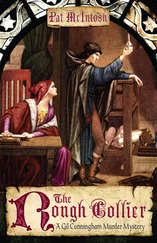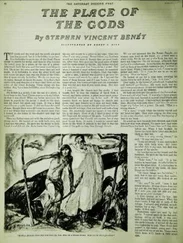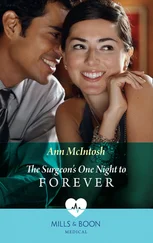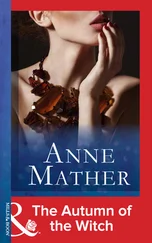Gentile fumbled with the switches of the auto cam and turned it on, then announced the time, date, and the interview participants. The second man was Louis Peres, another detective.
In an earlier life Gentile could have played defense for pro football. Maybe his suit jacket was too small, but his muscles bulged and strained against the pinstripes. His cheeks were pockmarked, his hair cropped close to the head and stone white. He wore a Rolex Cellini Classic and a silver ring on his baby finger. He looked to be pushing sixty. Old for a cop. Gentile locked his gaze on me; Peres flipped through the material in his file without bothering to acknowledge my presence.
A female civilian clerk entered with a pitcher full of ice water and some glasses. She set the glasses in front of the detectives, put the pitcher on the table, and left.
“Okay,” Gentile said. “Let’s get started. Tell us what happened.” He lifted his eyebrows, stared at me, and jutted out his chin like a wrestler setting me up for the first chokehold.
“Before we get into that, I came here voluntarily. Why are you treating me like a criminal?”
“We’re just trying to get the facts here, Mr. Madison. A man is dead. Let’s hear what you have to say.”
His attitude didn’t fill me with confidence. “All right. I came because someone deliberately shot Hal full of high-grade heroin, a woman I met at Hal’s party. I heard her and another guy arguing with him as I was leaving the party.”
“Oh? What time would that have been?”
“Around midnight. I went straight to a club. You can check on that if you want.”
I knew Diane would back me up, and the time frames should easily rule me out for the murder. I gave him the name of the club and told him how to reach Diane. Gentile scribbled something down on a piece of notepaper and handed it to Peres, who left the room. I prayed Diane had already made it in to work.
Gentile continued, “So, can you identify these people?”
“The woman’s name was Eris; I don’t know her last name. Attractive, late twenties, fit, probably around five seven. The guy with her was pushing seven feet and heavyset.”
Gentile ran a hand over his forehead. Even though the room was cold he was sweating. His face was the color of raw beef. “Colin Reed talked about a woman like that. Claimed she left the party before he did.”
Of course, Reed, a married man, would say that rather than admit he wanted to ball her. “If she left, she must have returned later. I saw her there.”
More scribbles on Gentile’s notepad, but I could tell he wasn’t buying my story. “Are you back in business again? How did Vanderlin obtain his drugs?”
“Check that file you have. You know I was never involved with opiates.”
Gentile made a pretense of opening the folder, a bullshit move because he’d have reviewed the whole thing before he even walked in here. He flipped through several pages. “Convicted for fourth-degree grand larceny, 1989, selling marijuana. In 1990, charged with third-degree criminal sale of a controlled substance, twenty-two grams of cocaine. You managed to weasel out of that one. Maybe this time you’ve just graduated.”
“That was my wild youth. I was still a kid. I turned the corner on all that long ago. Anyway, those amounts are nothing.”
“What was your relationship with Vanderlin?”
I could have answered this easily twenty-four hours ago. The friendship had certainly been rocky at times, but I’d discovered depths of bitterness in Hal’s feelings about me I’d never known existed. All the same, I gave Gentile the short answer. “My brother and his father were friends. Hal and I grew up together.”
“That would be your brother, Samuel Diakos, and his father, Peter Vanderlin.”
“Right. Samuel was my half-brother, forty years older; more like a father, really.”
“Why is your last name different?”
“That’s a long story.”
“I’ve got time.”
“Samuel and I had the same father, a World War II resistance fighter with ELAS, the Greek People’s Liberation Army. He and Samuel were caught by the Nazis and sent to a labor camp. When camp officials learned my father was a goldsmith, they sent him to the Deutsche Gold und Silberscheideanstalt, a re-smelting company. He was forced to sort through trays of jewelry stolen from prisoners and assess its quality.”
“Obviously your father survived.”
“He did. One day he found a ring in the tray, the one he’d made for Samuel. He believed his son was dead. With no family left, he fled to the safe haven of Turkey after the war ended because the Greek regime was persecuting leftists. He kept his real identity secret and changed his last name to a Turkish one—Madak. Years later he remarried and had a second son—me. Samuel had been searching for his father. When he finally learned that my parents had died in an earthquake that caused a mine accident, he went to Turkey right away to take me home with him.”
“Oh, that’s right. You were the poor Turkish orphan. Samuel Diakos treated you better than a natural son. You repaid his generosity by killing him.”
The room turned red. The huge reservoir of guilt I carried around with me over Samuel’s death funneled into a blind rage. I made a move to get up, but the uniformed cop sped around the table and clamped an arm around my neck.
I was on the verge of blacking out when I heard Gentile say, “Okay, Verne, leave him alone. Give him a couple of minutes to chill out.” The cop let go but remained behind me.
Gentile poured some water into his glass and took a sip. He seemed pleased with his latest salvo. “Did you remove anything from Vanderlin’s house before you left the party?”
“No.” I wondered where this came from.
“Colin Reed told us he heard you arguing with Vanderlin. What was that about?”
“Hal owed me for a loan I’d given him. He told me he didn’t have the money.”
“So you got what he owed you some other way, is that it? You took the rest of the heroin with you?”
“Of course not.”
Gentile slammed his file shut. “Mr. Madison, there’s clear evidence Vanderlin died of a drug-related accident, unassisted. That information has already been made public. What interests us is how he obtained his drugs.”
“Look, that’s just a red herring. The woman I told you about was after something Hal Vanderlin stole from my brother, a Neo-Assyrian engraving that may have come from Iraq. It’s worth a substantial amount of money.”
“Could you translate that please for us humble folks?”
“It’s a stone engraving made during the period when the Assyrian empire was at its height. About 800 to 612 B.C.”
“Thank you, professor . You’ve been a dealer in collector’s items, art objects, for what, the last seven years. Is that right?”
“Around that.”
“Lucrative business?”
“Up and down. Sometimes you do well. Other times it can be very lean. It all depends on your contacts, your networks.”
“And where do they come from, these contacts of yours?”
“Through Samuel originally. He was an archaeologist and had also studied Assyriology. He knew that world—the dealers, the academics, the museum bureaucrats. I’ve built my own roster of clients now. These last couple of years I didn’t have to rely on him as much.”
“Has your work focused on Middle Eastern objects?”
“At first it did because that was Samuel’s specialty. Since then I’ve branched out. Some Renaissance art and, of course, Peter Vanderlin’s collection.”
“So your talents are wide-ranging. You must have a remarkable knowledge of art to cover such broad territory.”
A false compliment, I thought, deliberately planted. “I know a lot about the Middle East because I grew up with an expert on those cultures. As far as the rest is concerned, I’m light on that. My skill’s in sales. I’m really a broker. The important thing is getting to know your clients well—their dreams. With the objects themselves, you can always buy the research.”
Читать дальше












